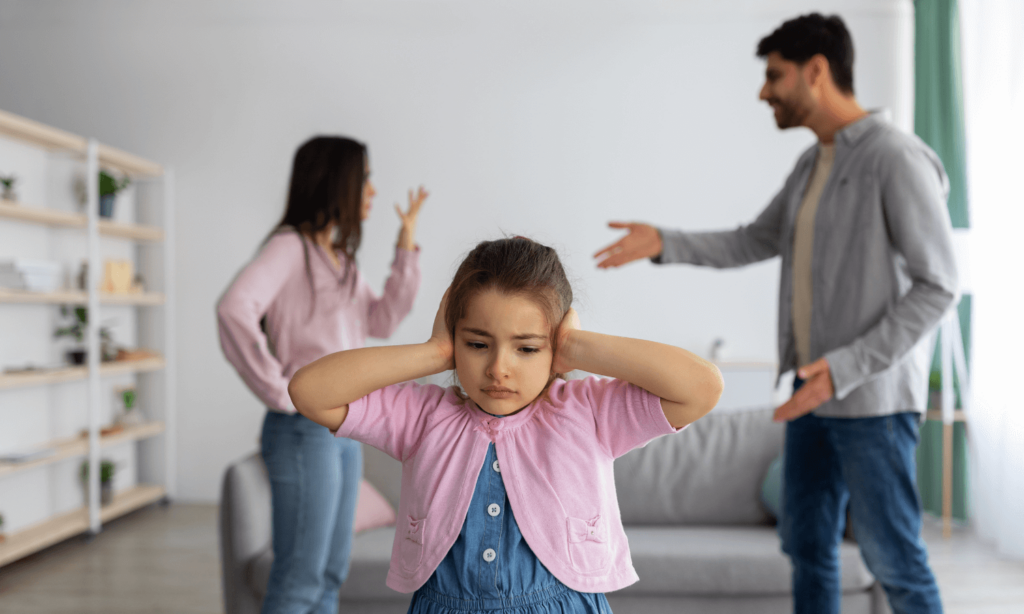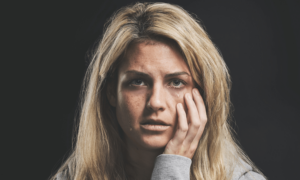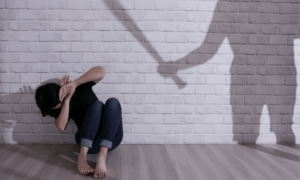This website uses cookies so that we can provide you with the best user experience possible. Cookie information is stored in your browser and performs functions such as recognising you when you return to our website and helping our team to understand which sections of the website you find most interesting and useful.
What is Trauma (Pt. 6) – Signs & Symptoms (3 of 3)

Today I’m talking about the signs and symptoms of childhood trauma, known as ACEs (Adverse Childhood Experiences).
Laura
- March 19, 2024
Today we’re continuing our series on Trauma, by finishing our discussing on the different signs and symptoms of trauma. Specifically, we’re talking about ACEs (Adverse Childhood Experiences).
This series is here to help you understand what trauma is, what the signs and symptoms are, and how and why God created you in a way that includes trauma. We’ll cover the basics of this mental health dysfunction, all the way into some of the science of how it wires into your memories and nervous system. This will give you the foundation for understanding how to heal any trauma you may be carrying. Because trauma is one of the main causes of stress in life as a human.
This is the 6th in a series of 10 posts called “What is Trauma”. Learning about trauma can be overwhelming and even triggering. I encourage you to go slow, letting God lead you to where He needs you right now. And if at any point your get triggered and need help, there are free and paid resources linked at the bottom of each post. They’ll help you out of those triggers, back into the state of peace in your mind and body. You deserve that, so don’t shy away from help if you need it. I’m praying for you.
The Signs & Symptoms of Trauma
Today I’m finishing our discussion on the signs and symptoms of trauma, by introducing you to ACEs (Adverse Childhood Experiences).
If you missed the previous posts, I talked about what the signs and symptoms of trauma are (the main types along with dissociation). As well as introduced what trauma is, what the 5 different types of trauma are (Acute, Chronic, and Secondary, and Developmental, Complex and Complex PTSD). These are great introductions into trauma and the symptoms we’re going to talk about today.
Adverse Childhood Experiences (ACEs)
Adverse Childhood Experiences, also known as ACEs, are the hardships you may have gone through as a child. They’re the things you’ve experienced, like abuse, neglect and hardships with family members; that led to you feeling helpless, hopeless and without the proper care to handle all of that helplessness and hopelessness.
These experiences often lead to childhood trauma, which is also called developmental trauma.
In the mental health world, ACEs began as a study, which grew into an assessment to help practitioners understand the level of trauma you might be carrying from childhood.
This 10 question assessment helps you understand the level of hardships you lived through as a child. And therefore, how much trauma you might be carrying from those hardships. These hardships are things that have happened within your home (not including hardships within your community, country, globe or natural disasters – we’ll get to those further down in this post).
The Assessment
The assessment measures 10 different types of trauma that you may be carrying, from 10 different types of adverse experiences (hardships) that you may have lived through in childhood.
These 10 types of adverse experiences include:
- Personal types (occurred frequently, not just one time):
- Physical abuse
- Sexual abuse
- Verbal abuse
- Physical neglect
- Emotional neglect
- Familial types (related to other family members):
- Parent who’s an alcoholic
- Mother who’s a victim of Domestic Violence (DV)
- Family member who’s in jail
- Family member who’s been diagnosed with a mental illness
- Disappearance of a parent through divorce, death or abandonment
One of these adverse experiences can lead to childhood trauma. The higher the number of experiences you’ve lived through, typically the higher the level of your trauma.
You can read more about developmental trauma and the Complex (Big C) Trauma it can be linked to here and here.
Outside Your Home
The original assessment measured the level of trauma you might be carrying from adverse experiences that happened within your home. It excluded adverse experiences outside of your home. (You can read more about why here, if you’re interested).
Since the study was originally published, many in the mental health world have expanded on this assessment to include adverse experiences outside of your home.
These experiences include:
- Community:
- Poverty
- Discrimination
- Community disruption
- Violence
- Food scarcity
- Poor water and air quality
- Poor housing quality and affordability
- Lack of jobs and substandard wages
- Lack of social capital and mobility
- Substandard schools
- Structural racism
- Historical Trauma
- National & Global:
- Pandemic
- Environment:
- Tornadoes and hurricanes
- Volcano eruptions and tsunamis
- Earthquakes
- Wildfires and smoke
- Record storms, flooding and mudslides
- Record heat and droughts
What This Means for Your Life
If you’ve suffered from any of these types of adverse experiences, it’s possible you’re carrying trauma from them. Because that trauma happened in childhood, it includes developmental trauma, which affects the wiring of your brain along with other developmental processes. This not only affects your mental health, but your physical health as well.
The symptoms you may be experiencing because of the adverse experiences you’ve lived through can include:
- Mental and Emotional Symptoms:
- Chronic depression
- Antidepressant prescriptions
- Suicidal attempts
- Behavioral changes:
- Early sexual involvement (earlier than normal, teen years)
- Substance abuse, and early in life (smoking, drinking, etc)
- Risk for intimate partner violence
- Multiple sexual partners
- Unintended and/or adolescent pregnancies
- Impaired work performance
- Inability to develop healthy relationships
- Inability to self-regulate (calm yourself down out of anxiety, panic, triggers, etc.)
- Abuses later in life
- Being raped later in life
The health impacts you may be experiencing because of the adverse experiences you’ve lived through can include:
- Physical health impacts:
- High liver disease (hepatitis, jaundice)
- High heart disease (ischemic heart disease (IHD))
- Diabetes
- Chronic obstructive pulmonary disease (COPD)
- Sexually transmitted diseases (STDs)
- High mortality
- Fetal death
- Health-related quality of life
As your ACE score increases, your risk of mental, emotional, behavioral and physical symptoms and illnesses can increase as well. The ACEs study uncovered that when your ACE score is 4 or more, these impacts are much more serious.
What this means for you is that:
If you have an ACE score of 1 or greater – there are likely some mental, emotional, behavior and physical symptoms that you’re experiencing because of your trauma.
If you have an ACE score between 2-3 – you’re likely experiencing more symptoms because of your trauma.
If you have an ACE score of 4 or more – there are likely some serious mental, emotional, behavioral and physical symptoms and illnesses that you’re experiencing because of your trauma.
Healing is always possible. Mental health knows how to heal trauma. If your trauma is causing these symptoms, healing your trauma should help reduce your symptoms and illnesses, if not help heal them completely.
Take the Assessment
Here is the 10 question ACEs assessment. If you want to do this by hand to have with you, you can print a PDF of it here.
If the answer is yes, mark a “1” for that question. At the end of the assessment, add up all the points you have.
All questions refer to the first 18 years of your life.
1.
Did a parent, stepparent, or adult living in your home often or very often… Swear at you, insult you, put you down, or humiliate you? or Act in a way that made you afraid that you might be physically hurt?
No _____ Yes (enter 1) _____
2.
Did a parent, stepparent, or adult living in your home often or very often… Push, grab, slap, or throw something at you? or Ever hit you so hard that you had marks or were injured?
No _____ Yes (enter 1) _____
3.
Did an adult, relative, family friend, or stranger at least 5 years older than you ever… Touch or fondle you or have you touch their body in a sexual way? or Attempt or actually have oral, anal, or vaginal intercourse with you?
No _____ Yes (enter 1) _____
4.
Did you often or very often feel that … No one in your family loved you or thought you were important or special? or Your family didn’t look out for each other, feel close to each other, or support each other?
No _____ Yes (enter 1) _____
5.
Did you often or very often feel that … You didn’t have enough to eat, had to wear dirty clothes, and had no one to protect you? or Your parents were too drunk or high to take care of you or take you to the doctor if you needed it?
No _____ Yes (enter 1) _____
6.
Were your parents ever separated or divorced?
No _____ Yes (enter 1) _____
7.
Was your mother or stepmother: Often or very often pushed, grabbed, slapped, or had something thrown at her? or Sometimes, often, or very often kicked, bitten, hit with a fist, or hit with something hard? or Ever repeatedly hit over at least a few minutes or threatened with a gun or knife?
No _____ Yes (enter 1) _____
8.
Did you live with anyone who was a problem drinker or alcoholic, or who used street drugs?
No _____ Yes (enter 1) _____
9.
Was a household member depressed or mentally ill, or did a household member attempt suicide?
No _____ Yes (enter 1) _____
10.
Did a household member go to prison?
No _____ Yes (enter 1) _____
Total points: ____________
Even 1 point can indicate childhood trauma (developmental trauma), which can be a high level of trauma. For many, the points are higher than 1.
How Trauma Gets Stored in Your Brain and Body
In the next post, I’m beginning our discussion on the science of how trauma gets stored in your brain and body. Along with a conversation about why God created you in a way that can store trauma.
Do You Have Trauma And Need Help With Your Triggers?
If you’re struggling with trauma triggers and life-altering effects they bring, I have resources for you.
While I always encourage healing in 1-on-1 sessions with a therapist or trauma coach, you’re also going to need help in between those sessions.
Here is a free video of one of my favorite mental health techniques for turning off trauma triggers. It’s a quick 5 minute exercise that will shift you back into the state of peace in your mind and body.
I also have a full Membership of videos and audios (just like the free one) to help you turn off your triggers anytime, anywhere. Some are short exercises to turn off your triggers quickly so you can get back to your life, while others are longer opportunities to turn off your triggers and release the hard emotions that came with them.
You deserve to live and thrive in the state of peace in your mind and body. And God wants that for you.
If you’re struggling with trauma and the damaging effects of it, know that it’s not only ok to get help. It’s beautiful.
From one survivor of this hard life to another,
I’m praying for you ♥︎
– L aura
Related Posts
Want Laura On Your Blog?
Ready to Find Peace in Your Mind and Body?
Join the
Stress Release
for Christian Women Newsletter
mental health resources and encouragement for turning off your stress, releasing your emotions and coming back to the state of peace in your mind and body.




